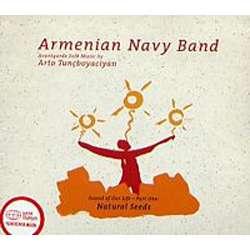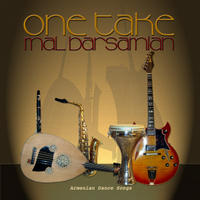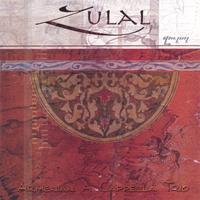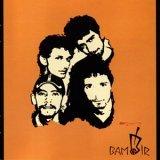Deti Picasso- Ethnic Experiments
DETI PICASSO- Ethnic Experiments (Deep Movement)
Where do we start with this one?
The band Deti Picasso is from Russia. Two of the members are Armenian in lead singer Gaya Harutyunyan and brother/guitar player Garen Harutyunyan. The 2004 CD "Ethnic Experiments" is sandwiched in between two other releases, 2002's "Mesjac Ulybok" (CD Land Records), and their new 2006 release "Glubina" (Deep Movement). They are not considered "Armenian artists" in the sense that they cater to the Moscow rock/punk/experimental music scene and sing mainly in Russian. That's their bread and butter. Like many ethnic Armenians in Europe and North America, they presumablydecided to dabble into their roots and as the CD title states, create "Ethnic Experiments". They have a cult following in Armenia and have given several very successful club concerts there, despite the general indifference toward rock music in the Homeland.
Whether I simply casually listen, review, or produce artistic risk-takers, there is a high degree of respect that is accorded to them right off the bat from me. I first heard an MP3 song (Im Gala) that was somehow sent to me via email in 2004 via Christina Sarkissian (the person who gave me a copy of Bambir- Quake while in the US) via Gor Mkhitarian. I had never heard Armenian music performed like this before. Yet, I was confused on whether I actually liked the music and needed more of a sample set. So, finally, after 2 years of looking around, I finally bought an authentic CD of "Ethnic Experiments" at the Avant Garde Folk Club on Pushkin this summer and have had time to ponder and absorb the music.
Presented as a loose concept album with the first track being dedicated to listening to a person waking up in the morning (or evening) and making a pot of coffee all while hearing the effect of a needle dropping on a record with LP scratches all while flutes, clarinets, and shvi's are being introduced. In general, musicians have to be careful when presenting a concept album as sometimes the side effects can detract from the main meal of music. See Prince's "The Sign Album" or Pete Townhend's "Pyschoderilect" as examples. Thankfully, Deti Picasso keeps the sideshow to a minimum while making its point. All of the brief interludes (track 7, secret hidden track at the end of the album) point toward a spiritual bond with their "ancient Armenian folk songs". I'll let you listen and decide to see if you think it's effective. I think it is, yet, maybe not as profound as the band intended it to be.
After the opening introductions, the band gets right down to business with one of the standout tracks on the album, Ai Nina (track 3) which features the nervous, edgy, and strangely beautiful voice of Gaya setting the stage for a somewhat epic version of the popular folk song. I can assure you it has never been played like this before, as toward the end of the song the band uses bone-crunching guitar licks and uninhibited vocal layers to finish off the the 5 minute crecendo. With quick breaks in the middle of the song fueled by the sounds of a cello, Deti Picasso create finesse in the eye of a storm. The ninth track, Ai Lele Yar is another bright spot proving the can handle a slow tempo while interpreting another folk song in a majestic and beautiful fashion. I had never imagined this song would ever be approached in this way. It's one of the reasons "Ethnic Experiments" is so appealing and effective.
Usually, producers like to front load an album with the best songs, leaving the filler toward the end before a strong finale. In this case, the best song on the album comes surprisingly third from the end with Merik. Again, based on a folk song, all main elements that Deti Picasso try to exhibit in the course of the album converge to form a masterwork of a song. It's all there, the angst, the finesse, the sound samples, the crecendo, the clarinet, and best of all, the passion. It is at this point in the album listening process, you begin to understand very clearly that this is a special band, and a special album.
Gaya's voice is not operatic, smooth, or even attractive. It is jagged, nervous, and urgent. She reminds me of Kristi Stassinapoulou or Savina Yannatou, both from Greece. A case can be made that she reminds of a raw Allanis Morrisette. In all cases, at first glance the voices aren't appealing. Yet, how they use it is very important. And, ultimately very effective. As for the rest of the band, they succeed in giving Gaya the neccessary color and punkish attitude needed for this all to work.
"Ethnic Experiments" is the type of album release in the Armenian language that happens once every few years. It startles you, and makes you think by going deeper into the approach than what is usually presented in a simple folk song. While anonymous artists come and go in Yerevan and in the Diaspora using folk music as a cheap vehicle to make money or springboard a career because they have no originality of their own, credit Deti Picasso for digging deep, and producing a delightfully flawed masterpiece of an album. Now, this is real music.
3.5 out of 4 Stars




